Continuando con la publicación de la Guía para aplicar a programas de Ph.D., en Estados Unidos, presentamos los capítulos restantes, del 4 al 10, que pueden enlazar con la primera publicación: Guía para aplicar a programas de PhD., en Estados Unidos– Oportunidades.
Como se explica con anterioridad, este material es una contribución del ingeniero Kevin Villegas Rosales, elaborada para apoyar a otros jóvenes profesionales en la búsqueda de oportunidades de especialización.
Continuación:
- Letter of Recommendation
- What sets you apart: the letter of recommendation
The letter of recommendation is the core of your application, and to be honest it takes years to build good letters. In specific cases a letter of recommendation can grand you admission immediately, and perhaps make you competitive against the world.
Professors are very busy people. They have to take care of their students, the funding, the lab, the presentations, the lectures, and, even most important, their families. So as a rule of thumb, the letter of recommendation should be asked several weeks in advance before the deadline. One month in advance is a good amount of time.
Also, you need to consider that the professors need to write the letter and that could take time as well. Crafting an astonishing letter is a lengthy and tedious process.
When I sent out an e-mail to my professors I attached my CV (includes your past academic/research achievements), a brief description of the places/positions that I was applying to, and info about your future intended research and academic goals.

Down I put the layout of the e-mail that I sent.
I recall that my professors didn’t get back to me after a week, so I decided to send a follow up e-mail (this was a suggestion of Luis Jauregui and I think is great idea and I still use it these days). Sunday nights are a great time to send out e-mails, so he/she can check it on Monday morning. Hence, the ideal time to send a follow up e-mail would be Sunday night as well.
From one of my professors I got this reply: ‘Yes. I will be happy to write a letter for you. Pls make sure send me a list of addresses and due dates, and copy to xxx. (Also remind/check the letters status 1-2 days before the due dates).
You will get notified as the letters of recommendations are submitted, so if 1.5 weeks before the deadline they are not there yet send a reminder. One of my professors send the letters after the admission’s deadlines and there was no problem. In most of the cases this is ok, since the graduate schools knows about all the ups and downs of writing a letter of recommendation. The application process asks you for three letters of recommendation.
It is mandatory that one of them come from your college, but the other two could come from any part of the world. One of my letters came from undergraduate adviser at UNI, Abel Gutarra. The other two came from abroad. One from Prof. Yong P. Chen at Purdue University (this came from my internship with nanoREPU). The last letter came from Prof. Gianluigi Botton at McMaster University (this is an internship I did the year after my time at Purdue). So, I managed to get three letters of recommendation. From the admission’s perspective it is better to have letters from people that are known worldwide. After you got screened with the standardized test they will give more chances to well-known names that unknowns letter from Peru, unfortunately. That is all for now.
- Letter of Recommendation
Dear Prof. XXXX
| This is XXXX (nanoREPU), the undergraduate from Peru that worked in your laboratory during the spring semester of 2013. I worked under Dr. Tai-Lung Wu’s guidance in the superconductivity of exfoliated BSCCO samples. I hope everything is going great with the research at the QMD lab, and that all the projects are going great.
I am graduating from my undergrad next month, and I am in the application process for graduate school, and I was wondering if I could get a letter of recommendation on my behalf. My CV is attached.
I am applying for PhD to the following places: Purdue University (ECE), Columbia University (Phys.), Stanford University (Appl. Phys.), UC Berkeley (Phys.), Princeton University (Phys.), Cornell (Appl. Phys.), Harvard (Appl. Phys.), UC San Diego (Phys.), MIT (Phys.), and McMaster (MSE). My interest in those departments is in nanoscience, nanotechnology, and condense matter. I want to mainly focus in the study of quantum phenomena in nanosystems, and also introduce these new phenomena and properties into new technologies. I want to make a difference and contribute to the scientific community with new knowledge, and I think I can do that, first, through graduate school; later on, I would like to follow a position in academia.
Please, let me know if you have any questions.
Thanks you so much in advance.
Best rega
XXXXXX
|
- Statement of Purpose
- You are not a robot: statement of purpose
The statement of Purpose exists to bring life to your application. It will show to the admission’s office that the you write a proper essay. As the standardized tests, a perfect SoP won’t grant you admission, but a bad written one could put you out of the race.
A statement of purpose that dazzles takes a couples of months of rewriting and rewriting. I found writing the essay very interesting. It made me realize what has happened up to that point career wise.
I started my SoP by deconstructing the past. I went through memories from college, high school, etc. of events that I believed led me to where I was standing at that point. I believe I named all of the great life-changing events that led me where I was.
Back when I was writing the essay I convinced myself that a good SoP will make you stand out among hundreds of applicants. Up to this point I haven’t been able to clarify the mysteries behind the admission process. Nevertheless, after reviewing hundreds of applications the CVs tend to look quite similar.
I started thinking about the outline of the SoP as I read: How to write a winning personal statement for graduate and professional school by Richard J. Stelzer. You can find it in the library of EducationUSA or on the internet. Also, there is plenty of information in the internet about how to write a great statement of purpose.
Each statement of purpose is different for each school you are applying to, because each school ask you to answer different specific questions. So, be sure to follow what they ask you. Let’s see what some schools got to tell you.
Purdue University. The statement of purpose should be 300-500 words concerning your purpose for undertaking or continuing graduate study, your reasons for wanting to study at Purdue, and your research interests, professional plans, and career goals. You also may explain any special circumstances applicable to your background and elaborate on your scholarly publications, awards, achievements, abilities, and/or professional history.
Columbia University. Describe how your professional and academic background has prepared you to pursue the Ph.D. program in Electrical Engineering at Columbia University FFSEAS. If there are any special circumstances that need to be brought to the attention of the Admission Committee, please include that information as well.
Stanford University. The Statement of Purpose should describe succinctly your reasons for applying to the proposed program at Stanford, your preparation for this field of study, research interests, future career plans, and other aspects of your background and interests which may aid the admissions committee in evaluating your aptitude and motivation for graduate study. The Statement of Purpose should not exceed two pages.
UC Berkeley. Please describe your aptitude and motivation for graduate study in your area of specialization, including your preparation for this field of study, your academic plans or research interests in your chosen area of study, and your future career goals. Please be specific about why UC Berkeley would be a good intellectual fit for you.
- Statement of Purpose
Princeton University. Please write a statement of your current academic and future career plans as they relate to the Princeton department to which you are applying. In doing so, please cite relevant academic, professional and personal experiences that influenced your decision to apply for graduate admission and to obtain a graduate degree. Your statement should not exceed 1,000 words and must be written in English.
Cornell University. This one- or two-page statement states your reasons for undertaking graduate work and explains your academic interests, including their relation to your undergraduate study and professional goals. Include your full name and your proposed field of study at the top of each page.
Harvard University. You will be asked to answer the following question: «Describe your reasons and motivations for pursuing a graduate degree in your chosen program of study at Harvard. What experiences led you to your research ambitions? Concisely state your past work in your intended field of study and in related fields. Briefly indicate your career objectives. Your statement should not exceed 1,000 words.»
So, begin by understanding well what each program asks from you.
Your first step into graduate school, the first paragraph.
I never learned how to write properly. I used to fall asleep in Spanish and Grammar classes and did not have rigorous education. However, along the way of the application I learned a structure of how the SoP should look like. I learned that, in this template, the first paragraph serves to summarize all your essay and conveys enough information to be self-sustained. Also, during those months I learned that it is true that most of the time you will only read the very first few lines of an e-mail, essay, etc. So, try to get the attention of the reader with your first paragraph. Begin with a catchy sentence. Write about a personal experience that put you where you are right now – something to surprise the reader. Then, name your personal experiences in research, and order them in a coherent way to convey how these events opened your eyes into your future. Correlate your experiences with your future goals e.g. with your journey of learning and discovery. Build your profile mentioning your outstanding GPA, and convey the idea of a top notch student mentioning briefly the awards you have gain through all the past years. Furthermore, you can add a little more of a personality to your first paragraph by mentioning some outreach activities, and end with a very piercing and vehement sentence.
These what I kind of did and it just one way of doing it. I had a lot of help from people that revisited my essay repeatedly. Just before the submission the final essay looked so different from the first draft I made – that energized me, it is possible to make things better by iteration.
Your next paragraphs should deconstruct your future goals and interests. Show your future intents. Why you are interested in that specific research program at that specific school? Facilities, location, faculty, etc. Mention three professors you are interested to work with. Briefly mention what interests you from them.
Finally, you can dive yourself into your past experiences in detail. Reconstruct the steps that walked you to research, to your specific topic of research. Enumerate the different aspects of your contribution into the different research projects you have participated into. Write, gracefully, those moments that surprised you – remember that this is your only chance to put.
- Statement of Purpose
Your own voice into your application, so do not tell a story as a robot. Mention the techniques and new knowledge acquired, and, more important, highlight your discoveries. Enumerate your diligent efforts to achieve all what you have accomplished.
Finally, conclude with a boilerplate sentence such as ‘I am sure I am the best fit for your program, etc.’
Below, you will find the final draft of my essay.
When I was a child and watched science tv shows, I was always fascinated by the latest discoveries and continually asked myself how do they do it? Years later as an undergraduate in engineering physics, the blending of engineering and physics combined with research experiences answered my question. My questions were satisfied once I had the opportunity to perform research at three different universities in a multidisciplinary field (nanotechnology): National University of Engineering (Peru, 1 article published), Purdue University (USA) and McMaster University (Canada). In these research experiences, I interacted with several PhD students, post-doctors and professors. As a result, I realized that I wanted to make a contribution in science and engineering. Therefore, I strongly believe that being trained to conduct research at the graduate level will help my ongoing pursuit of learning and discovery. Working diligently in my research internships and simultaneously maintaining a 4.0 GPA has been very challenging but rewarding because I have received several awards from my university, the Peruvian NSF, and different non-governmental offices that sponsored my internships. My leadership skills were also sharpened during my experiences abroad and I have organized journal clubs and research seminars at my local school, to motivate other undergraduate students to perform high level research. All my research experiences have enhanced my confidence and motivation to pursue graduate studies. I am certain that I will overcome all the challenges I will face with an astute mind and determination.
My short term goal is to conduct research in electrical engineering as a PhD student at Princeton University because it will expose me to state-of-art research such as 2D materials such as graphene in condensed matter. The electrical engineering faculty generates top-notch research of which I am very familiar with and would be excited to be part of.
I would like to have the guidance of Prof. M. Shayegan because of his study of many-body interactions systems in semiconductors such as the integer and fractional quantum hall effect. In addition, I would like to work with Prof. B. Rand because of his work in the engineering of LED using thin films conformed purely in nanoclusters. I think their work is a good match with my previous experience in 2D materials, scanning probe microscopes, and electron microscopy. My long term goal is to become a professor in a research university and contribute to a growing body of scientists and engineers in Peru who are determined to nurture the next generation of students interested in science and engineering as I am.
- Statement of Purpose
As a side project, I decided to design and build a lock-in amplifier from scratch. After having constructed it, I obtained data showing that I could measure picoamperes with the lock-in amplifier.
My second cornerstone happened when I was selected by the nanotechnology branch of Research Experience for Peruvian Undergraduates (REPU) program from a pool of the best undergraduate students from all over Peru to participate in a research experience at Purdue University. In 2013, I worked in Prof. Yong P. Chen’s group in the fabrication of stacked devices using BiSrCaCuO as one component of a heterostructure. Before learning how to exfoliate BiSrCaCuO I went through the exfoliation of other crystals, such as graphene, MoS2, NbSe2 and boron nitride, which I learned in record time. In order to complete the project, we fabricated BSCCO field-effect transistors and we identified vanishing superconductivity for samples thinner than 80 nm. During my time at Purdue, I attended the APS March meeting of 2013 in Maryland. Running from room to room to catch various, interesting talks was very exciting, and being surrounded by well-known and respected scientists really inspired me. That experience motivated me to work harder to become a great scientist/engineer. At the end of my internship, I went to Yale University to present my work from Purdue University to professors, post-docs, PhD students, other undergraduates from Yale University, and the REPU community. During this final meeting, I enjoyed questions and discussions with people from different backgrounds like chemistry, biology, physics and engineering.
Finally, my third cornerstone was when I interned at McMaster University (Canada). In order to get this internship I directly contacted Prof. Gianluigi Botton and I convinced him that I was capable of conducting research well. In Prof. Botton’s group my project was to study graphene as an electrode for fuel cells. More specifically, my project consisted in the mechanically exfoliation of graphene, doped it with nitrogen gas, and sputter platinum on it (~1nm clusters). In order to study graphene with transmission electron microscopes (TEM), I suspended graphene on a TEM grid. After more than 20 failed trials with different reported methods I designed and built a transfer stage backed up with an optical microscope, which enhanced the transfer yield rate. We reliably measured down to 1% concentration of nitrogen in single layer graphene using Auger spectroscopy.
In conclusion, I believe that my experiences as an undergraduate researcher have prepared me to excel as a graduate student, and I strongly believe to be prepared for the challenges of your PhD program.
- Transcript
- The Resume is not an academic document: the curriculum vitae (CV)
At the end of this section you will find the CV that I applied to graduate school with. The layout was not my original idea but the contribution of senior people who helped to shape it. I would like to give special acknowledgements to the nanoREPU team which had a great contribution on this layout.
Looking back into what the my CV ended up being I recognized these themes: Objective, Research Interests, Education, Awards, Publications, Research Experience, Conferences and Presentations, Laboratory skills, Memberships, Language skills, Extra – curricular courses, Academic Leadership, and Personal References. This outline must not be considered a universal guideline, proceed to adapt it to your own personality.
The Objective section will give the reader a glance about yourself and your future goals towards a graduate program.
The Research Interests section will give the reader a glance about your personal interest regarding research. It is a crucial part because a mismatch between your interests will rise suspicions.
The Education section will summarize your past records. You may include the duration of the program, your major, but most important it is a great spot to give your class ranking and your GPA.
The Awards section it is of great importance. The recognition of yourself by others is a good indicator of accomplishments throughout your career.
The Publications sections is a very important one. However, none graduate program requires prior publications before entering a PhD or a MS. It is in this sections where you list any publications you have. Furthermore, you could also show that you have ongoing projects.
The Research Experience section is the main dish of your CV. It is a quick glance over your research record and it gives you the chance to highlight yourself up to the eyes of the reader. Remember that it is always important to sell yourself towards the specific requirements.
The Conferences and Presentations sections is important because it shows your early progress as a young to be researcher and also shows that you have experience sharing your science.
The Laboratory skills, certainly not as important as critical thinking and problem-solving skills. However, specific skills could reduce the time you spend getting use to the environment of a new laboratory.
The Membership section can show your commitment and awareness to your scientific community.
The Extra-curricular courses can show your willingness to learn besides the mandatory courses you took to finish your major.
- Transcript
The Academic Leadership can show your willingness to make other people grow and your spirit to help and contribute.
To conclude, Personal References.
Mr. XXXXXXXXXXX
Adressssssssssssssssssssss (+51)
xxxxxxxxx Adressssssssssssssssssssssssss Xxxxxxxxx
@gmail.com
Objective
I seek to obtain a P.hD. degree in a very well renowned program. During my P.hD. years I would like to contribute to the scientific community with the research I would perform. I aim to put in practice my problem solving, analytical thinking, and leadership skills in a very competitive laboratory.
Research Interest
- Experimental condensed matter physics and nanoscience (graphene/2D materials, superconductors, novel materials, quantum phenomena). •
- Characterization of materials in the nanoscale with electron microscopy (structural composition analysis, TEM, SEM). •
- Scanning Probe Microscopy (tuning fork based, fabrication of tips, study of surfaces STM/AFM).
Education
2010 – 2014 (Expected) | National University of Engineering (UNI), Lima, Peru B. Engineering Physics, ranked 1st in my class. GPA: 4.0
Awards
- 2 nd place in undergraduate research paper (topic: sciences). ‘Structure your ideas contest’, organized by a link between industry and Peruvian NSF (Concytec), Peru, November 2014.
- Peruvian NSF (Concytec) fellowship 2014. Full stipend for a 3 month research internship at McMaster University, Canada, spring 2014.
- Manuel Pardo y Lavalle’s award, 2013. Distinction given to UNI students with the highest GPA in their major by their 3rd year of courses.
- nanoREPU program fellowship 2013. Chosen for a 3 months research internship at Purdue University, USA, spring 2013. (http://repuprogram.com/REPU/Alumni.html)
- proUNI (organization formed by distinguished UNI alumni) fellowship. Full stipend for 3 months research internship at Purdue University, USA.
- 1 st place in Nanotechnology poster competition at 3rd International Conference of Spectroscopy, Peru, February 2012. 7.
- Transcript
Publications
- A. Villegas, and A. Gutarra, “Controlled geometry and sharpness of carbon-based nanometer tips: a theoretical and experimental approach” (in progress).
- A. Moran Meza, C. Lubin, F. Thoyer, K. A. Villegas, A. Gutarra, F. Martin, and J. Cousty, “Fabrication of ultra-sharp tips from carbon fiber for STM investigations of graphene on 6H-SiC(0001) surfaces”, Carbon 86, 363 (2015).
- A. Villegas, and G. Botton, “Inversion of contrast, SEM imaging, at different bias and accelerating voltages” (in progress).
- A. Villegas, S. Stambula, and G. Botton, “N-doping and Pt-atoms decorated mechanically exfoliated suspended graphene” (in progress).
- A. Villegas, J. Aparicio, T. L. Wu, and Y. P. Chen, “Fabrication, characterization, and study of mechanically exfoliated materials” (in progress).
- A. Villegas, and A. Gutarra, “Fabrication of carbon fiber tips for Scanning Probe Microscopy” (selected for cover), TECNIA 22, 17-22 (2012).
Research Experience
McMaster University, Advisor: Dr. Gianluigi Botton Microscopy of Nanoscale Materials Laboratory (01/2014 – 04/2014)
I introduced mechanical exfoliation (graphene) to the group for the first time. I built and designed a homemade transfer stage to suspend graphene on a TEM grid. We achieved to doped graphene with nitrogen gas (concentrations of doping could be varied). I designed the conditions to sputter ~ 1 nm Pt clusters on graphene. I did TEM and SEM analysis on suspended/non-suspended graphene.
Purdue University, Advisor: Dr. Yong P. Chen
Quantum Matter and Devices Lab
(02/2013 – 04/2014)
I mechanically exfoliated graphene, MoS2, BN and BSCCO. I measured the height of exfoliated flakes with AFM in tapping mode configuration and I corroborated their number of layers by Raman spectroscopy. We built FETs of BSCCO with different thickness (10 nm to 80 nm) on SiO2 wafers and I performed electronic transport measurements at low temperatures (down to T = 1.2 K) using a variable temperature insert.
National University of Engineering, Advisor: Dr. Abel Gutarra
Nanostructured Materials Laboratory,
(04/2014 – 05/2014)
I designed and built a low-cost lock-in amplifier from scratch; this amplifier will be used to measure the photocurrent (in pA) generated in a photodiode by light scattering of non-metallic nanoparticles.
(07/2011 – ) We work in the fabrication of a tuning-fork based AFM. I electrochemically etch carbon fibers to a tip (probe for AFM). I designed my experimental set-up (micromanipulators and electrochemical cell). I achieved reproducibility in the fabrication process. I can control the geometry and sharpness (~ 10-50 nm) of the tip. We measured the tip radius with SEM and Field-Emission experiments. Using the fabricated tips we could reconstruct the graphene lattice.

- Transcript
under STM experiments. I am working on theory and simulations to understand the underlying phenomena.
Conference and Presentations
- A. Villegas, T. L. Wu, L. Fang, Z. Xiao, Y. P. Chen. “Study of mechanically exfoliated BSCCO, high temperature superconductor”, XXII Peruvian Physical Symposium, Lima – Peru (October 2013) – Conference. •
- A. Villegas, T. L. Wu, and Y. P. Chen. “Mechanical exfoliation of 2D materials and its morphological characterization”, REPU 2013 meeting, Yale University – USA (March 2013) – Conference. •
- A. Villegas. Participation in the APS March Meeting 2013. •
- A. Villegas, A. Gutarra. “Fabrication of carbon fiber tips for Scanning Probe Microscopy”. XXI Peruvian Physical Symposium, Trujillo – Peru (October 2012) – Conference. •
- A. Villegas, A. Gutarra. “Electrochemical analysis of anodic dissolution of carbon fibers”. 3st Congress of Physics Engineering, Medellin – Colombia (September 2012) – Conference. •
- A. Villegas, A. Gutarra. “Method for the fabrication of tips on nanometer scale based on carbon fibers”. 3rd International Conference of Spectroscopy, Lima – Peru (February 2012) – Poster.
- Laboratory skills Imaging & characterization, SEM, TEM, Auger spectroscopy, Raman spectroscopy, AFM, optical microscopy, interferometry measurement.
- Vacuum components
- Microfabrication, RF magnetron sputtering, plasma etching, electrochemical etching/polishing, mechanical exfoliation.
- Programming, C, Matlab, LabView (Intermediate), IGOR pro, Latex.
- Data Processing, Origin Pro, IGOR Pro, ImageJ.
- Electronic measurement, lock-in amplifier, probe
- Transcript
- “X-ray and electron diffraction applied to nanomaterials and nanomedicine”, International Workshop, Peru, June 2012.
- “Exploring Quantum Physics”, Joint Quantum Institute, Maryland University, trough coursera.org
- “Atomic Force Microscopy”, 3st Congress of Physics Engineering, Colombia. September 2012. • “Theoretical-Experimental Techniques for studying nanosystems”, Nano-Peru, Peru. November 2011.
- “I Course of Molecular Biology”, Universidad Nacional Mayor de San Marcos, Peru. March 2011.
Miscellaneous Activities
- ‘Journal Club @ UNI’, I scheduled the room, oriented the group of students, and made a calendar of papers presented; first journal club at National University of Engineering. (04/2013 – 07/2013) and (04/2014 – 07/2014).
- ‘thinkUNI’, talks of how to pursue graduate studies directed to undergraduates. (12/2013) – I served as head organizer. I scheduled the place for the conference, and was chair of the conference. (12/2012) – I served as part of the organizer committee. I helped to set up the conference room, and build/distribute the flyers.
- ‘Sharing Science’, I served as part of the organizer committee and was chair of the conferences, talks about research projects from graduate students to undergraduates, (04/2012 – 07/2012).
Personal References
Dr. Yong P. Chen Purdue University, USA Phone: (765) 494- 0947
yongchen@purdue.edu
Dr. Gianluigi Botton McMaster University, Canada Phone: (905) 525-9140, ext. 24767 gbotton@mcmaster.ca
Dr. Abel Gutarra National University of Engineering, Peru Phone: +51 987-957- 517 agutarra@uni.edu.pe 7
Transcript 7.
You against the world: the transcript plus some side documents
Another required document is your transcript e.g. ‘tu certificado de notas’. In the case that you haven’t graduated yet, you can apply to graduate school with the latest updated transcript.
That could mean that you present your transcript up to the 9th semester if you are in the 10th . Also, if you failed courses along the way use ‘certificado depurado’. I failed ‘lenguaje’ in my 3rd semester, so I needed to get the latter transcript. At UNI you could get a transcript from ORCE or your own department. From friends that applied before me they told me to use the one from ORCE, so I don’t know if the one my department would have worked. Nevertheless, the ORCE one is ‘more official’. You will need to translate it.
During the application process I went to EducationUSA (located at ICPNA) and there they told ICPNA has a translation service, so I used that one. They will ask you to scan the document and send it to them through e-mail, and you will have to make a deposit to a bank account for the translations. When the work is done they will write you back for you to pick the documents. I also want to let you know that EducationUSA offers support for the application process – they even give small scholarships for test prep and they can afford to pay some school for you to apply to. Go early in the process to get advantage of this opportunity.
UNI does not use the GPA system and I am not aware if any school in Peru uses it. I recall there are many GPA convertors in the internet, but I know the grades in Peru fluctuate depending on your university, so its tricky and I don’t have a universal solution. Fortunately for me, UNI had implemented a grade-to-GPA conversion system, so I used directly that one.
From of my visits to EducationUSA I learned that they provide a document called ‘Educational System and Grading System in Peru’. This document clarifies to US schools how grades work in Peru. Hence, it is highly recommended to attach this document with your transcript.
Many universities ask for a certificate that states the expected date of graduation, which means last semester of courses. A good friend suggested me to take advantage of it. I asked for such a document and on it I asked the Head of my department to write a note. The note stated my ranking among my peers.
For example
This document certifies that xxxxxxxxxxx, has finished his 9th semester, out of 10, with the highest cumulative grade of his Engineering Physics class. Up to his 9th semester his cumulative grade was 14.643 which is an equivalent to A+ (excellent). His cumulative grade is an equivalent to a GPA of 4.0.
Also, this is provisional certificate that Mr. xxxxx expected date of graduation is December of 2014.
- Post-application e-mail
It took me a while to just craft this template. Luie, contributed to it a lot – my English was very bad at that time, now is a little better. Thanks, Luie.
If you do not receive a reply e-mail do not forgot to use a follow up e-mail after a week.
| Dear Professor XXXXX,
My name is XXXX.
I am finishing up my undergraduate studies in xxxxxx from xxxxxxxxxx at Lima, Peru. I am applying to Princeton University’s Electrical Engineer PhD program, and I would like to know if your laboratory will have available positions for the fall of 2015.
I have had the chance to work with field effect nano-devices based on thin BSCCO layers. I have studied its Raman spectra and AFM vs. thickness dependence. Also I have studied their resistance vs. temperature dependence down to liquid helium temperatures. I worked in this project in a spring semester internship (spring of 2013) at Purdue University (under prof. Y. P. Chen’s guidance). During the spring of 2014 I worked on suspended, nitrogendoped, and platinum decorated graphene with the help of transmission electron microscopes and other electron microscopy techniques at McMaster University (prof. G Botton). At my home university I have worked in the fabrication of SPM tips for my undergrad thesis.
I have read your paper on the study of the FQHE with a filling factor of 1/2 (PRB 89, 165313, 2014). I am very interested in the study of condense matter systems and their quantum phenomena such as QHE and topological superconductivity. I have been exposed to the techniques of how to deal with 2-dimension materials and how to fabricate nanodevices based on exfoliated crystals and in my home university I have been exposed to SPM techniques (we are building one STM from scratch). In the group of prof. Burch, they have obtained a density of states spectra using a tunnel junction and AC differential conductance (Nature Communications 3, 1056, 2012). I think it would be a good idea to perform the AC differential conductance method and try to map the charge distribution of the 2DHSs and see if the behavior is single-layer or bi-layer like when the filling factor of the FQHE is 1/2. The heterostructure system would allow the fabrication of the tunnel junction.
Do you think it would be worthwhile to pursue these experiments in your laboratory?
Best regards,
xxxxxxxxxxxx (xxxxxxx@gmail.com) |
- Interviews
Just one final step: interviews
Near the end of the application process I encounter two types of interviewers. One from the admission’s office (yet a faculty in the university). And, the other a professor that you contacted through e-mail.
The first type of interview will come from the admission’s office. The e-mail will contain information regarding who is going to interview you and the schedule.
The second type of interview will come directly from the faculty that you expressed interest in you Statement of Purpose.
After the interviews I realized that the one from the admission’s office was far more general than what I thought. One of the interviewers asked me to interview him instead of him interviewing me. The second and I just talked a lot about general Physics.
First, we will talk a little bit about the interview with a specific professor. Since you have expressed interest into working with him it makes sense for you to have tons of questions. In this specific case you need to prepare/familiarize a little more with the topic of the professor for the interview because, I believe, he will be gauging you.
To prepare yourself you need to know very well the person you will be interviewing with e.g. What is he famous for? Which is his most cited paper and why?
During the interview, most of the talk may lay upon the professor, but he will be willing to know about you too. We can recall some topics such as ‘goals for graduate studies’, ‘academic & research experiences’, and ‘your desire for graduate studies’.
During the interview with the admission’s office questions such as Why that school in specific? and Why that program in specific? will pop up. These are considered more general in terms of research, but, however, they are of equal importance.
A typical question that always seems to appear is the ‘strengths and weaknesses’. In your strengths you can name hard working, passionate, dedicated, but in the weaknesses be careful. Although the name is ‘weaknesses’ you will need to find a balance between a weaknesses and a strength. Maybe being workaholic, it is way more than sure that a professor may like that word; however, you can blend it with a little of bad things such as ‘work so hard until completion that forget to call friends’.
In the interview with the graduate committee you may be asked why you are interested in that specific program, and you will be required to mention the professors you are interested into and briefly their research.
- Further reading
[1] Demystifying the U.S. Graduate School Application Process. Luis Hernandez. REPU magazine.2013.
(https://attachment.fbsbx.com/file_download.php?id=575529479207417&eid=ASvXDFy1jN Z4lA4iod1_JoL8Z57MU2GxM6KSnuJWGc_BWbaFe7jAMnX5CfSqycj- _vY&inline=1&ext=1431366552&hash=ASt2jcb4dCN-i4du)
[2] What is like to be a tenured professor? Quora thread. Special remarks on Jay Wacker answer. (https://www.quora.com/What-is-it-like-to-be-a-professor)
[3] How do I ghost-write myself a good letter of recommendation from my professor? I am applying on the academic job market. Quora thread. Special remarks on Jay Wacker answer. (https://www.quora.com/How-do-I-ghost-write-myself-a-good-letter-of-recommendationfrom-my-professor-I-am-applying-on-the-academic-job-market)
[4] Graduate Record Exam (GRE): What is the best way to prepare for the GRE? http://www.quora.com/Graduate-Record-Exam-GRE-2/What-is-the-best-way-to-prepare-forthe-GRE?srid=XfG5&share=1
[5] What is the best piece of advice given by people’s PhD supervisor? http://www.quora.com/What-is-the-best-piece-of-advice-given-by-peoples-PhDsupervisors?srid=XfG5&share=1
[6] HOWTO: Get into grad school for science, engineering, math, and computer science http://matt.might.net/articles/how-to-apply-and-get-in-to-graduate-school-in-sciencemathematics-engineering-or-computer-science/
[7] How do you compare pursuing a PhD in Europe vs a PhD in USA http://www.quora.com/How-do-you-compare-pursuing-a-PhD-in-Europe-vs-a-PhD-inUSA?srid=XfG5&share=1
[8] How do I judge professors while choosing an adviser, solely based on their research? https://www.quora.com/How-do-I-judge-professors-while-choosing-an-adviser-solely-basedon-their-research
[9] How to be More Productive and Eliminate Time Wasting Activities by Using the “Eisenhower Box” http://jamesclear.quora.com/How-to-be-More-Productive-and-EliminateTime-Wasting-Activities-by-Using-the-%E2%80%9CEisenhowerBox%E2%80%9D?srid=XfG5&share=1
Acknowledgements
Acknowledgements
First, I would like to acknowledge Abel Alcazar the founder of the Research Experience for Peruvian Undergraduates (REPU), for if he had not founded the program you may not be reading this document – sometimes, it only takes the action of a person to keep things rolling Second, I would like to give special thanks to the actual directors of the REPU Sofia Espinoza and Kenji-Diaz for their labor of keep the REPU program growing.
Special thanks to the friends and family, for if their support has not existed we could not have made it ‘till this very end point.
Last but not least I would like to express my vast gratitude towards the nanoREPU branch; Luis Jauregui, Alfredo Tuesta, Alfredo Bobadilla, Edson Bellido, Jimmy Encomendero, and Keitel Cervantez. This guide was written because their knowledge fell into my mind. Thank you.
And for the reader, sorry for the typos .
Kevin Villegas Rosales
Animarse y buscar oportunidades
Este material forma parte de la experiencia profesional de Kevin Villegas Rosales, a quien damos nuevamente las gracias. Los animamos a revisar cada capítulo, a investigar aquellos aspectos que sean de interés particular o de los que tengan dudas, sobre todo, los animamos a compartir esta Guía en las redes, con sus colegas, amigos y conocidos, que cada día un/a estudiante latino/a acceda a una nueva oportunidad de estudios, superación y progreso. ¡Y mucha suerte!
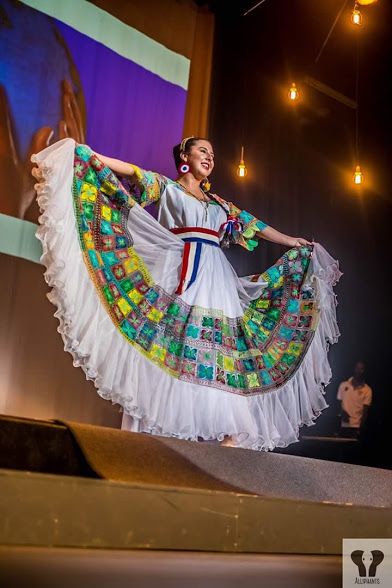
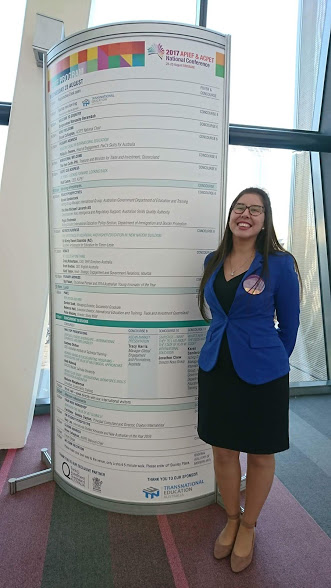
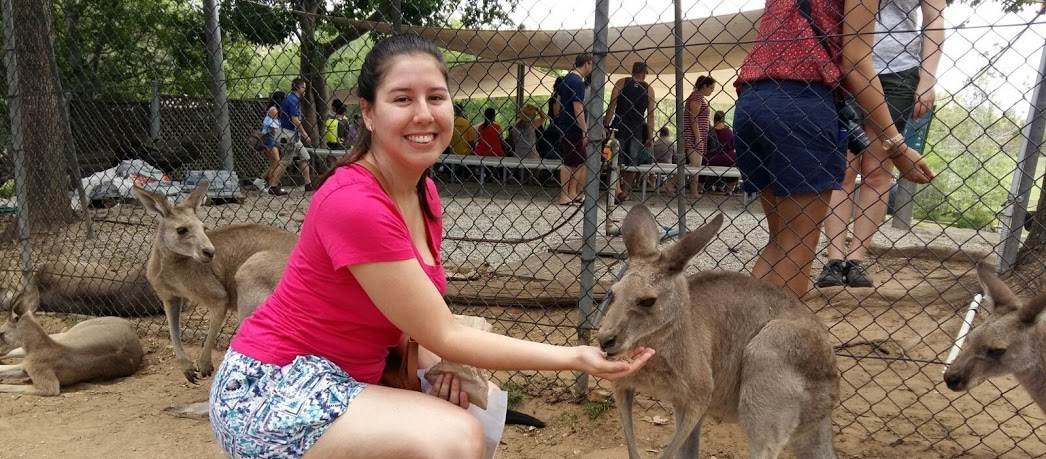
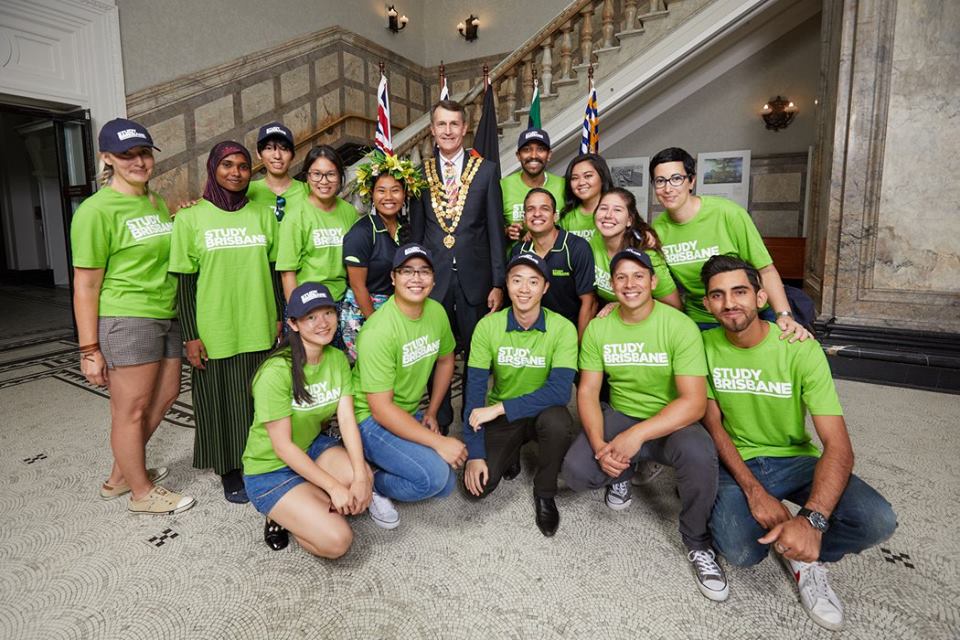
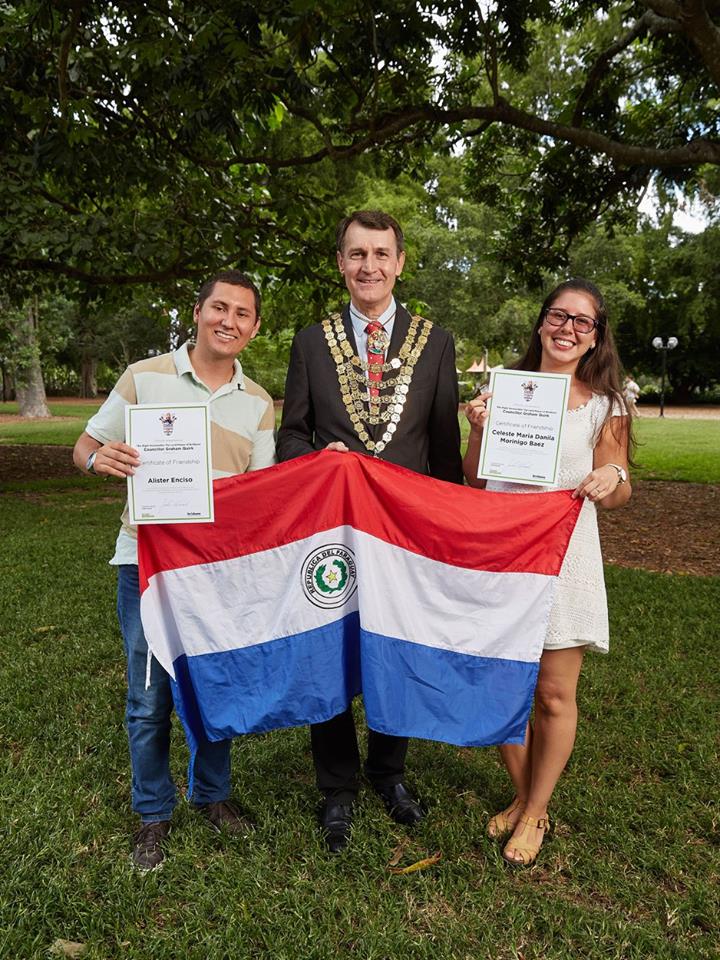
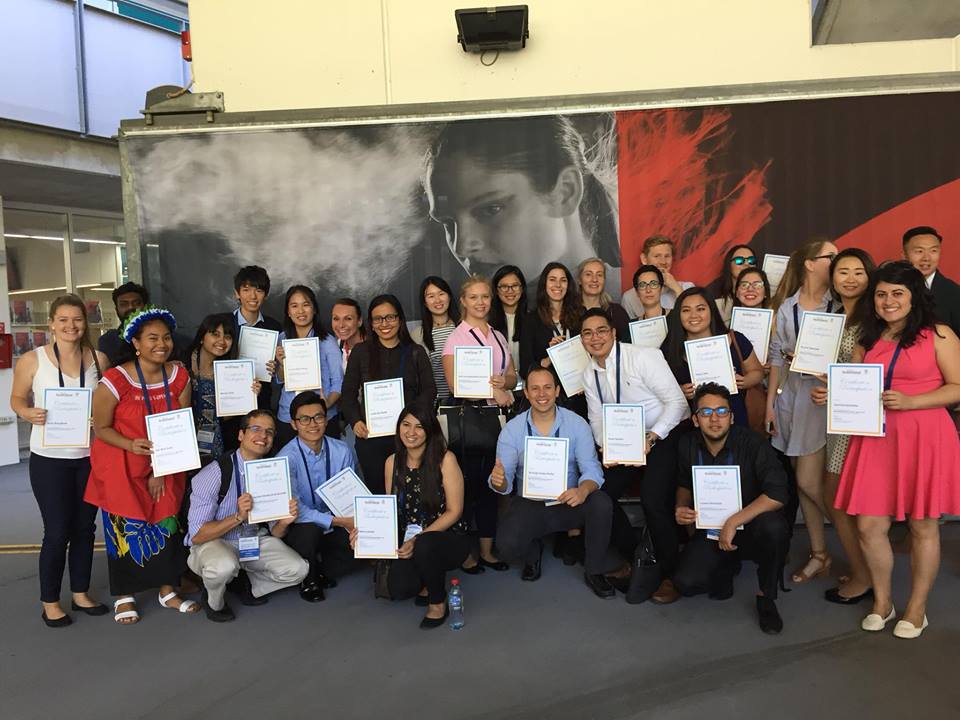
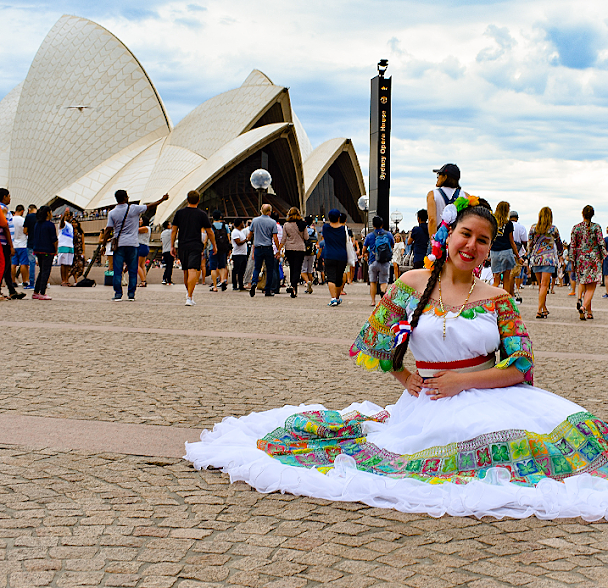
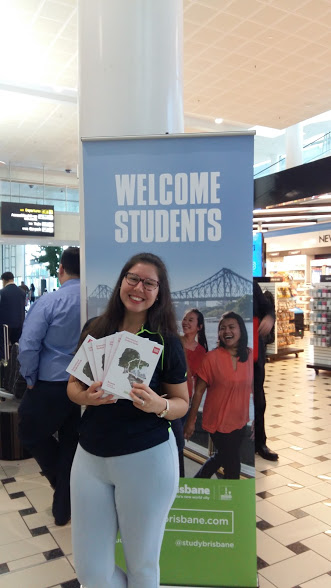






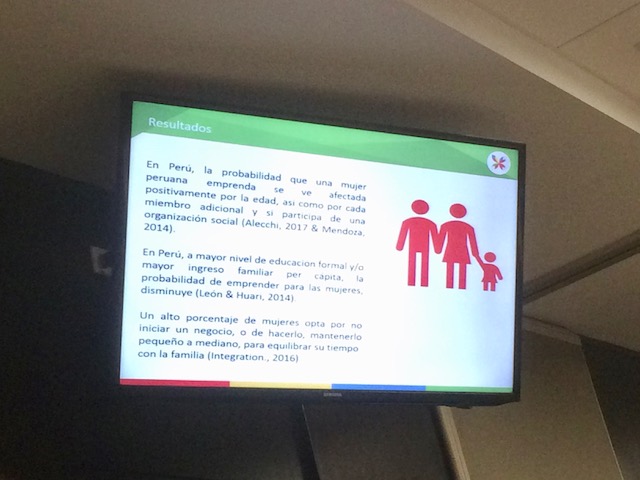








 Compromiso con la comunidad
Compromiso con la comunidad
 Alessandra Romero
Alessandra Romero






